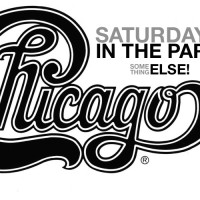Chicago hadn’t put out an album of new material since 1991’s lightly regarded Twenty 1, then something unexpected happened – very unexpected. They hooked up with … the mainstream country band Rascal Flatts?
“We were playing up in the Pacific Northwest and [Rascal Flatts] was in the same market playing shows,” Chicago trumpeter Lee Loughnane told the Tulsa World in 2006. “[Bassist] Jay [DeMarcus] came to one of the shows and we hooked up there. The next thing I knew was he was sending songs to our manager, Peter Schivarelli.”
It was, admittedly, an odd pairing. But DeMarcus had already bonded with fellow bassist Jason Scheff, revealing (originally in a fan letter) that he was an unabashed Chicago fan – despite the fact that they’d spent so long of late wasting their obvious talents on throwaway bonus tracks and Christmas fare.
Scheff ended up singing at DeMarcus’ wedding in 2004. Schivarelli saw for himself how the two acts might mesh when Scheff made an unannounced guest appearance during a Rascal Flatts concert in Illinois. “The audience – Rascal Flatts’ audience – just went crazy,” Robert Lamm told the Orange County Register.
So, the resulting collaboration may have seemed like it came out of nowhere, but 2006’s Chicago XXX was really the result of a careful alignment of interests. “Chicago was a big influence on all three of us [in Rascal Flatts] growing up,” DeMarcus told CMT in 2005. “I admire their musical integrity. When the opportunity came up to produce them, I couldn’t let it go by.”
The first stirrings of a new Chicago album actually didn’t trace back to Nashville but to a 2003 Robert Lamm solo project. Subtlety and Passion, for the first time, found the famously eclectic Lamm re-inhabiting the old Chicago sound. Some of his long-time bandmates even stopped by the contribute. But Chicago was still lost creatively, with nothing to spur them back to any larger sense of purpose.
Enter Jay DeMarcus. He was initially approached about producing a few tracks, but his enthusiasm encouraged them to deepen the partnership. It wasn’t conventional; in some ways, it didn’t make sense at all. At this point, however, Chicago’s sails had been slack for more than a decade. They had nothing to lose.
“Peter says, ‘I just heard some of Jay’s songs and I think he’s really good and he wants to produce us. You guys should definitely consider this,'” Loughnane added. “We talked to him and here we are, Chicago XXX.”
Then the expected happened – something very expected, actually: The album begins with “Feel,” a horns-free power ballad. Now, Rascal Flatts isn’t exactly a horn band, and Chicago had been drifting away from their jazz-rock roots for decades. Still, there was a chance squandered to try something genuinely new. Instead, subtitling “Feel” with “(Hot Single Mix)” only underscored the band’s now-rote fall back position: XXX would be (yet another) play for pop stardom.
That didn’t happen, of course. Someone must have alerted Jay DeMarcus to that distinct possibility, however, because he also produced a different mix of “Feel” that prominently featured Lee Loughnane, trombonist James Pankow and reedman Walt Parazaider.
Helpfully retitled “Feel (With Horns),” this version boasts the same tired mechanical rhythm structure, the same Nashville-copyrighted sleekly twanged chorus, the same washed-out unspecifically uplifting lyrics – but at least there’s an occasional blast of brass to jolt everyone awake. The horns are particularly effective when “Feel” inhales deeply, about two thirds of the way through, before building into a passably David Foster-esque coda.
Why this wasn’t the released mix of “Feel” is anyone’s guess – including, apparently, members of Chicago.
“When you hear us live, you’re going to hear the one with the brass,” Loughnane told the Tulsa World, laughing. Then he added a thought that reveals everything about how directionless Chicago had become by this point: “I’m not quite sure why we had two different versions,” Loughnane mused, “but that’s the way it came out.”
- The Bright Spots in George Harrison’s Troubled ‘Dark Horse’ Era - December 29, 2024
- The Pink Floyd Deep Cut That Perfectly Encapsulates ‘The Wall’ - November 29, 2024
- Why Pink Floyd’s ‘The Endless River’ Provided a Perfect Ending - November 11, 2024


